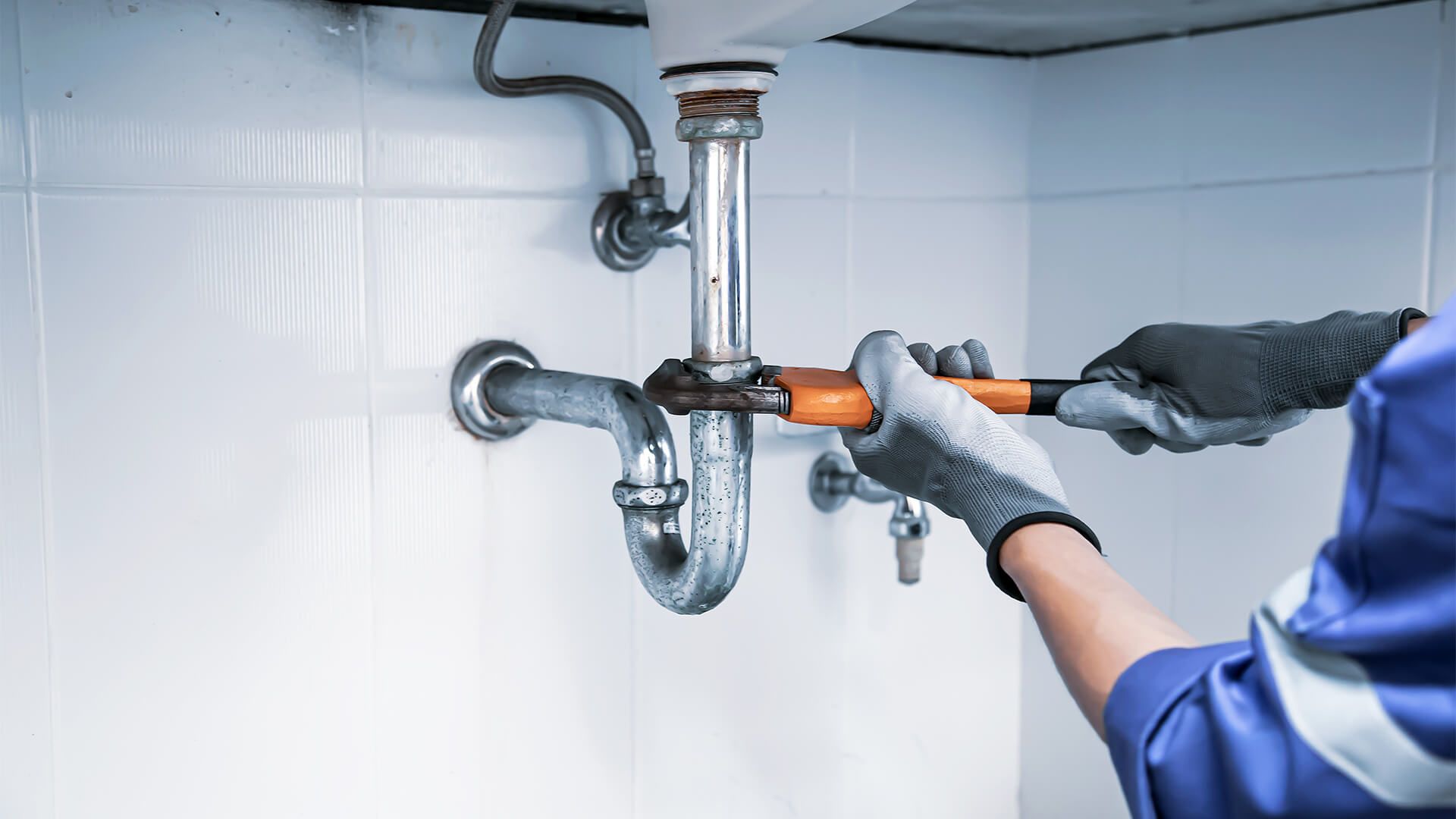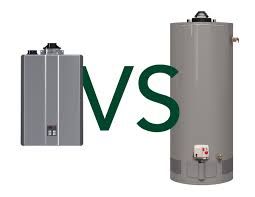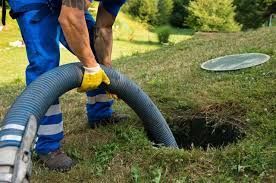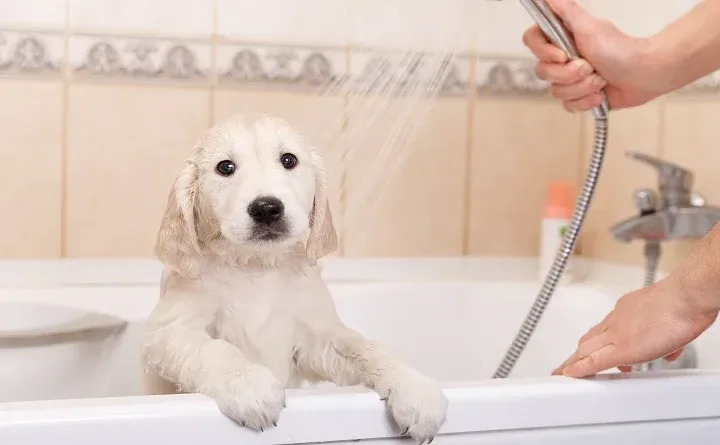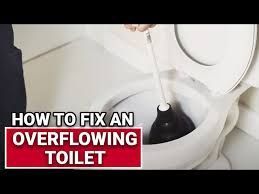by Youmna Rehman
•
8 April 2025
There’s nothing quite as unsettling as the sight of toilet water creeping up instead of swirling down. One second, you’re flushing like usual—and the next, your bathroom floor is under siege. If you've ever experienced a toilet overflow, you know it can feel like a full-blown emergency. But take a deep breath. Toilet overflows are common, and with the right approach, they’re entirely manageable. This guide will walk you through why overflows happen, what to do in the moment, how to clean up safely, and how to prevent future disasters. No plumber-speak. No panic. Just smart, practical advice. For professional help , reach out to us! How to Unblock a Sink in 5 Ways with Household Items Why Do Toilets Overflow? The Real Reasons Behind the Rising Water Before you can fix the problem, it helps to understand what caused it in the first place. Most toilet overflows come down to one of three things: 1. A Clog in the Trap or Drain The most frequent cause is a clog in the toilet's trap—the curved section of pipe inside the bowl—or farther down in the drain. This is usually due to excessive toilet paper, non-flushable items (like wipes, sanitary products, or even small toys), or buildup over time. 2. A Full or Backed-Up Sewer Line If your toilet overflows even when it hasn’t been flushed, the issue might lie deeper in your plumbing system. A blocked main drain line can affect multiple fixtures in your house, and that’s a sign of a serious underlying issue—like tree roots invading your pipes or years of buildup finally causing a backup. 3. Malfunctioning Toilet Parts Sometimes, the problem lies in the tank itself. A stuck flapper or a faulty float valve can cause water to continuously fill the bowl beyond safe levels, creating the perfect storm for an overflow—especially if there's already a partial clog. Step 1: Stop the Water Flow Immediately The first thing to do when you see water rising is to stop it from going any further. You need to act quickly to avoid flooding your floor. How to Cut the Water Supply Fast Open the tank lid and press down on the flapper (the rubber disk at the bottom of the tank) to stop water from continuing to enter the bowl. At the same time, locate the shut-off valve —usually behind or next to the base of your toilet—and turn it clockwise to stop water flow entirely. If the valve is stuck or you can’t reach it, lift the float ball or cup inside the tank to stop the refill process temporarily. You’ve just bought yourself time to deal with the issue without more water spilling out. Step 2: Clean Up the Overflow (Without Spreading Germs) Once the water has stopped rising, it’s time to handle the mess—safely and thoroughly. Start With Containment Use old towels or a mop to soak up the water from the floor. If the overflow was clean water (like from a flush without waste), it’s a lot easier to manage. But if the overflow includes waste, treat the situation like a biohazard. Wear gloves, use a disinfectant, and dispose of everything you used to clean up properly. Disinfect Everything It Touched Toilet water—even clean-looking water—can carry bacteria. Use a bleach-based cleaner or disinfectant on every surface that got wet, including baseboards, walls, and any rugs or items on the floor. Open windows or turn on an exhaust fan to help things dry quickly and prevent mold. Step 3: Unclog the Toilet Like a Pro Now that the overflow is under control, it’s time to tackle the root cause: the clog. Use the Right Plunger Not all plungers are equal. For toilets, you’ll need a flange plunger , which has an extended lip designed to seal over the curved toilet opening. Insert it firmly into the bowl and push and pull with force—while maintaining the seal. It might take several tries, but most clogs will break up with this method. Bring in the Toilet Auger If plunging doesn’t work, try a toilet auger —a flexible, crank-style tool that can reach deep into the drain to break apart or remove the clog. It’s easy to use and very effective for stubborn blockages. Still stuck after trying both tools? That’s your sign to call in a professional plumber. Tips for Conserving Water at Home Hidden Risks: Why You Should Take Overflows Seriously Toilet overflows might seem like a minor inconvenience, but they can lead to much bigger problems if left untreated. Water Damage and Mold If water seeps under your tile, linoleum, or wooden flooring, it can rot the subfloor and weaken your home’s foundation over time. Damp conditions are also perfect for mold and mildew, which can lead to respiratory issues and structural damage. Health Hazards When waste or contaminated water is involved, the health risks increase. Harmful bacteria and viruses can survive on surfaces and in porous materials. That’s why thorough cleaning isn’t optional—it’s essential. Expert Recommendations: What Plumbers Want You to Know Plumbers deal with toilet overflows every day, and they often say the same thing: “Watch what you flush.” The Golden Rule: If It’s Not Toilet Paper, Don’t Flush It Even products labeled “flushable” can cause clogs. Wipes, cotton swabs, paper towels, and feminine hygiene items don’t break down like toilet paper does and can accumulate in your pipes over time. Schedule Regular Plumbing Inspections If your toilet overflows often or drains slowly, get your plumbing system inspected. A professional can spot pipe damage, root intrusions, or blockages before they cause a crisis. Prevention Is Key: How to Stop Overflows Before They Start Once you've dealt with a toilet overflow, you’ll never want to repeat the experience. The good news is—preventing it is mostly about good habits. Make Toilet Rules in Your Household Teach everyone, especially children, what not to flush. Keep trash cans nearby so people aren’t tempted to toss tissues or other items into the bowl. Check and Maintain Toilet Parts Periodically open the tank and make sure the float, flapper, and fill valve are in good condition. If your toilet runs frequently or the bowl water level seems too high, make adjustments or replace the worn parts. Have Tools Handy Keep a flange plunger and a toilet auger in or near your bathroom. In an emergency, being prepared makes all the difference. Conclusion: You’re in Control, Even When Things Overflow Toilet overflows may be messy, inconvenient, and a little gross—but they don’t have to ruin your day. With calm action, a bit of know-how, and the right tools, you can take control of the situation and prevent it from getting worse. The best part? Every overflow is a learning experience that makes you better prepared for the future. So if it ever happens again (and let’s hope it doesn’t), you’ll know exactly what to do: stop the water, clean smart, unclog like a boss, and take steps to make sure your toilet stays trouble-free.

